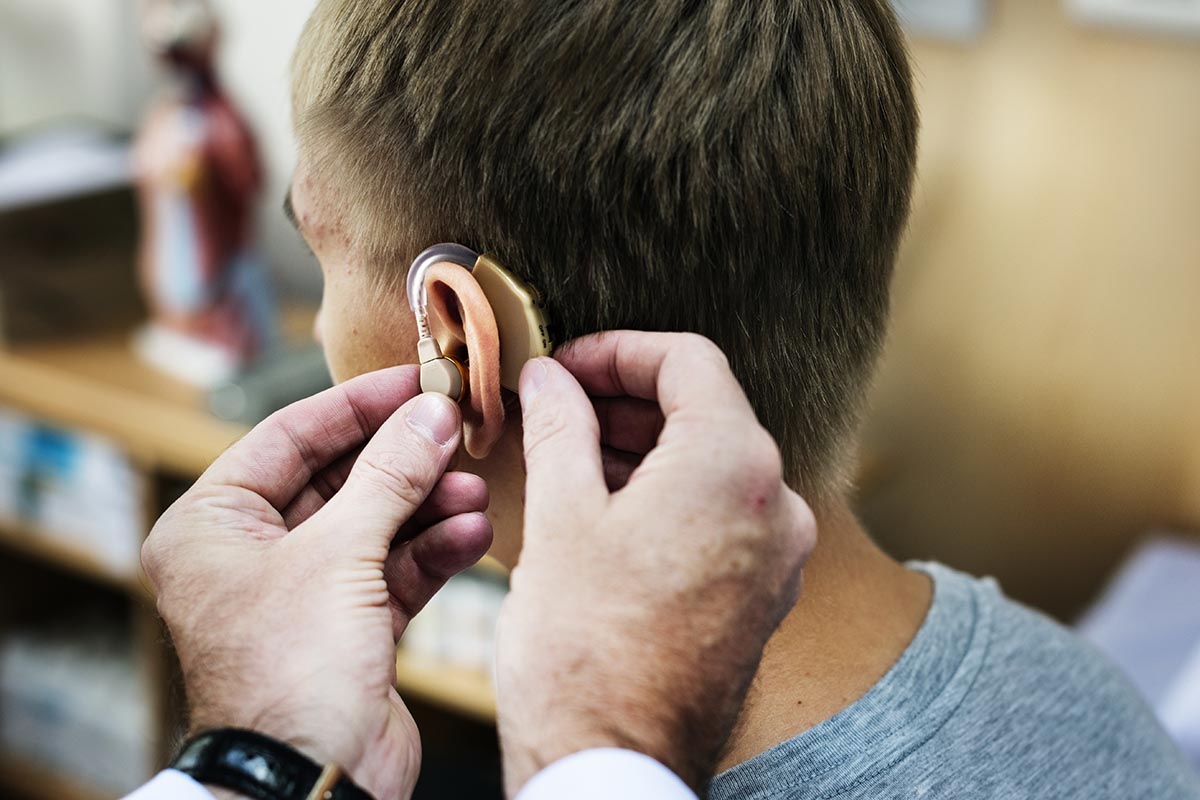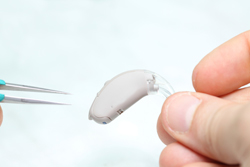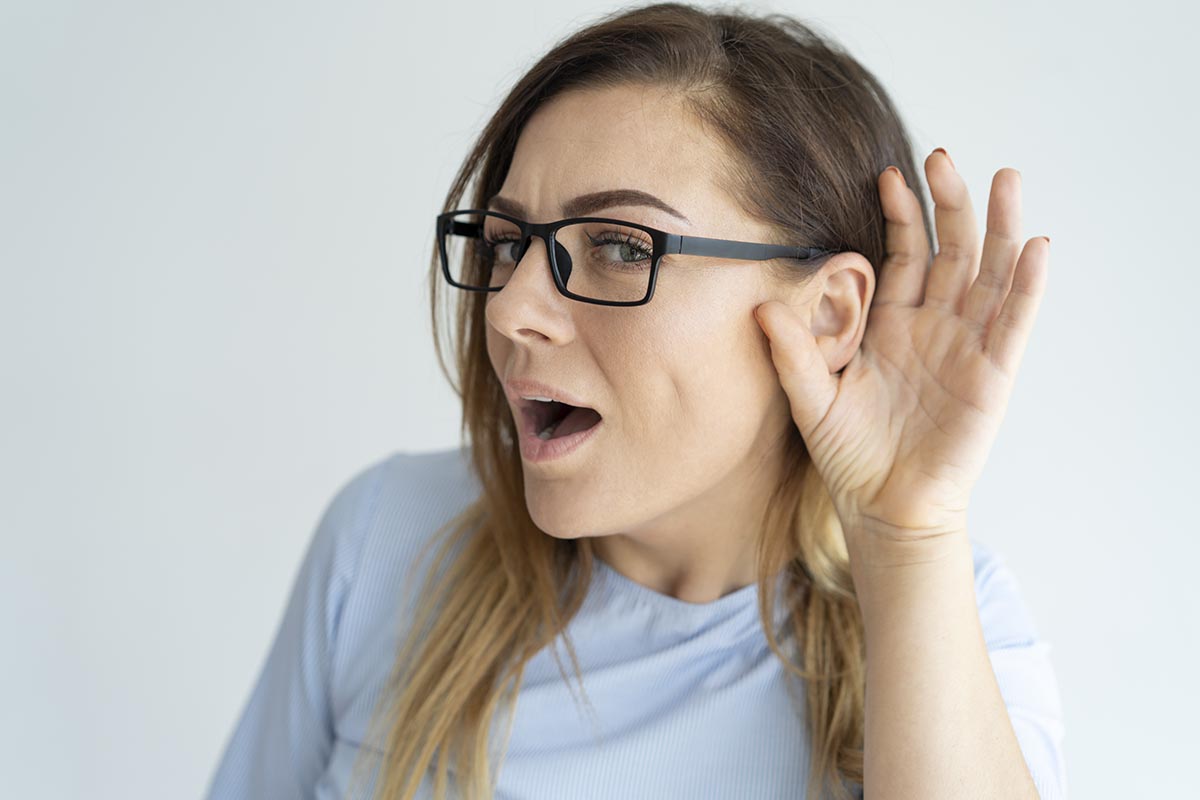Here are the Signs of Hearing Loss
Have you ever been having a conversation with someone and their speech sounds muffled? Have you ever had trouble hearing high pitched sounds like a doorbell or birds chirping outside?
The CDC cautions that these, along with other signs, may be indicators of hearing loss.
Early detection is important and you can request a hearing exam during a routine checkup with your provider. Regular screenings are advisable for children too since their ability to hear may impact their language and learning development. If you are showing signs of hearing loss, it may be advisable for you to see an audiologist. An audiologist is a healthcare provider that specializes in identifying, measuring, and treating hearing loss. They are also able to provide care for patients experiencing dizziness or vertigo.
According to data from The American Academy of Audiology, 69 million Americans have problems with dizziness or balance. An audiological practitioner can help with testing your balance and vestibular rehabilitation, if necessary.
Your visit to the doctor will usually begin with a review of your medical history, including any hearing problems that you may have. Next, they will take a look inside your ears using a lighted device called an otoscope. Then they are able to perform different tests to assess your hearing and come up with the best treatment option available to you.
Contents
A Brief History of Audiology
From the very beginning, audiology has been dedicated to not only understanding the impact that hearing loss can have on communication and social interactions but to treating that hearing loss as well. According to the University of North Carolina, the profession of audiology got its feet in the 1940s when servicemen and women returned from World War II with hearing loss induced by the noise. They can help you to understand why you’re feeling off-balance.
Addressing this condition required big steps and the US Government established programs for hearing rehabilitation across the nation’s military hospitals. Audiology continued to grow as universities developed a curriculum to train new providers with.
In the 1950s audiology programs became an asset in community speech and hearing centers that specialized in aural rehabilitation. In the clinical setting, you could find specialists performing hearing assessments in ENT offices.
As technology continued to advance through the development of hearing aids, implants, and testing devices, providers were able to offer new treatments to their patients.
Innovation in Hearing
Today you have many options to improve your hearing. One of the most common is hearing aids. A hearing aid is a small electronic device, or instrument, that can be worn in or over the ears.
The hearing aid works by picking up the sounds around you and amplifying them to make hearing easier.
An audiologist doctor can help you customize your hearing aid to your specific needs by setting it to only amplify sounds in specific regions of hearing loss. Many devices can even be synced with Bluetooth (wireless) for connectivity with your cell phone, television, or computer.
There is a full range of assisted listening devices (ALDs) available. Imagine going out to eat with your family and being able to join in the conversation that before, would have been drowned out by the background noise of the restaurant.
These devices can be controlled by you, to help you hear the sounds that you want to hear. There are a variety of different types of ALDs for different purposes such as hearing the telephone, watching TV, or going to a large public place such a classroom lecture or the airport.
Progress continues to be made in developing new devices and assistive technologies for people to experience hearing loss. By working together with your provider, you can enjoy the benefits of these new treatments and technologies.
How a Specialist Can Help You!
“Hearing loss can be objectively measured,” states New Jersey audiologist expert, Dr. Karen McQuaide. She continues on to explain that they can use “specialized equipment to determine if you have hearing loss, how much hearing loss you have in each ear, as well as what part of the hearing system is not fully functioning.”
Your specialist is going to work to determine what type and degree of hearing loss you are facing. After that, they are able to recommend devices that will fit your lifestyle, are comfortable to you, provide the sound quality that you need, and fit your budget. They can also help with custom earmolds and earplugs.
By using a custom earmold, they are able to maximize both the performance and comfort of your hearing aids. The mold isn’t just for your hearing aid either!
It can be used with your Bluetooth headset, other in-ear devices, or to securely fit earplugs into your ear. Custom earplugs can be used to protect your hearing in a variety of situations from the sound of gunshots while hunting, loud music at a concert, or just keeping out moisture while at the swimming pool.
When discussing hearing loss it’s easy to think what you’re losing, but when you meet with a hearing specialist you also have the opportunity to discuss what you could get back. It all starts with making an appointment and meeting with your hearing expert!

